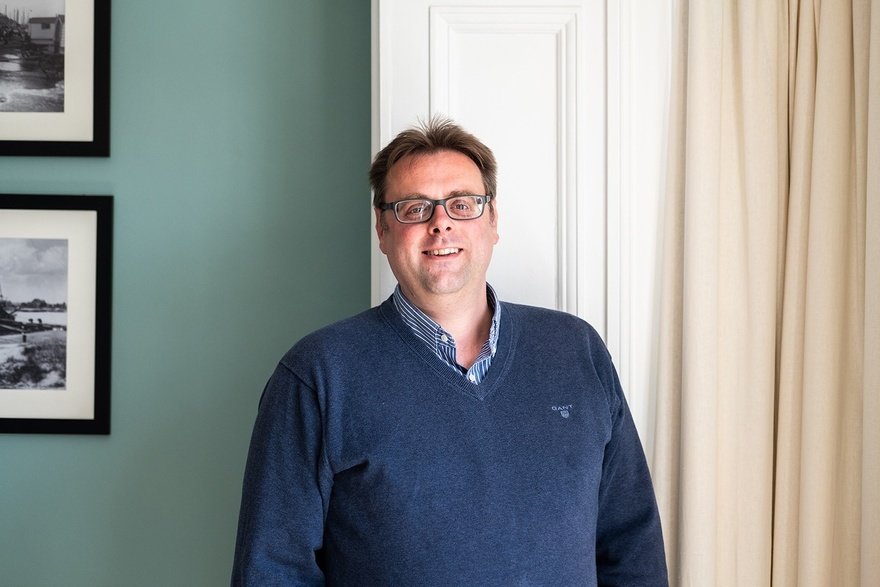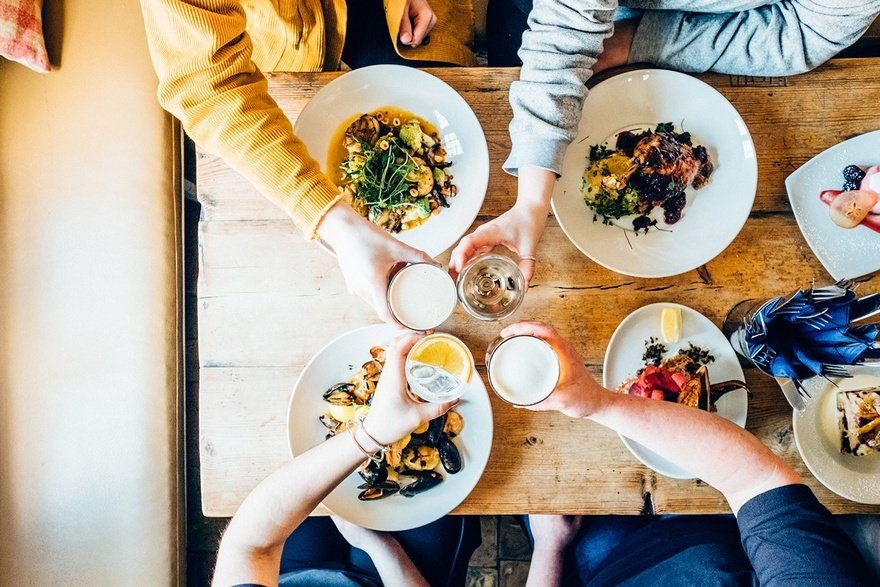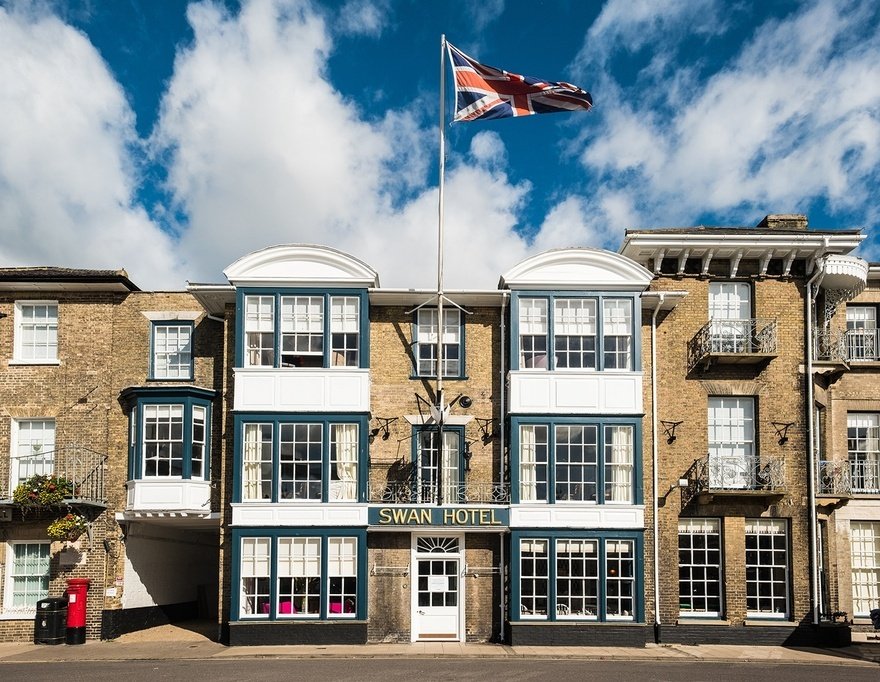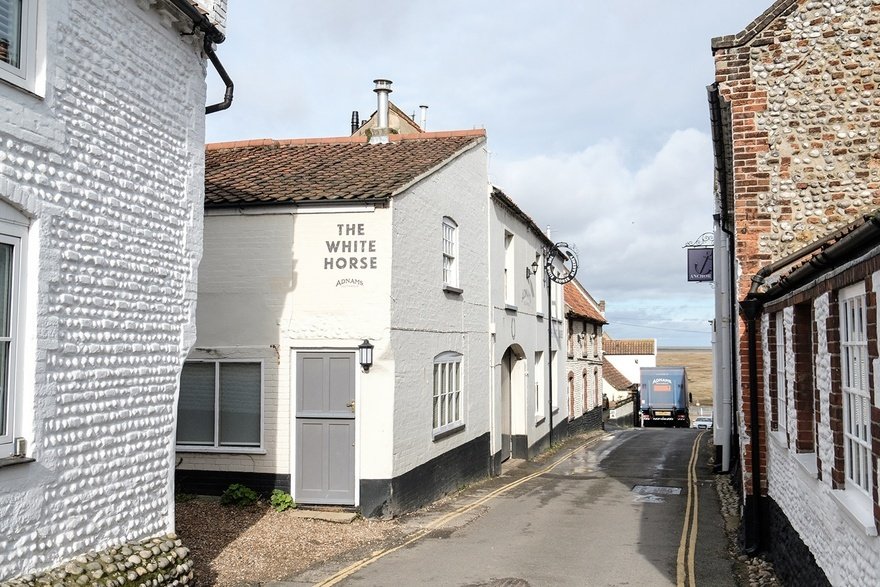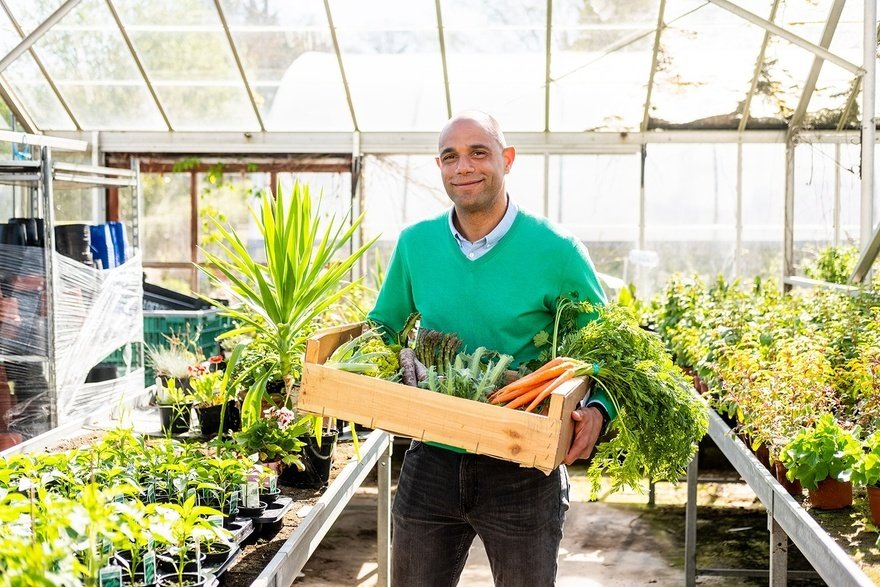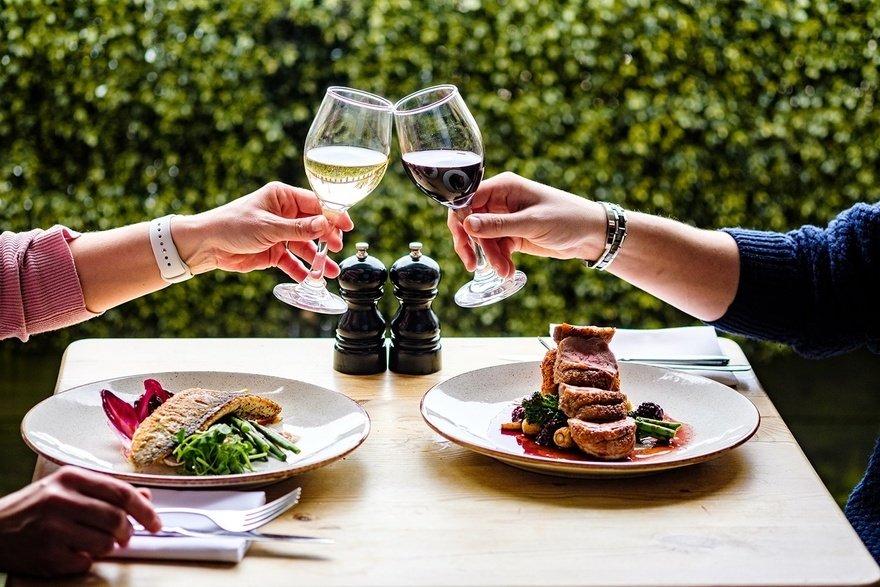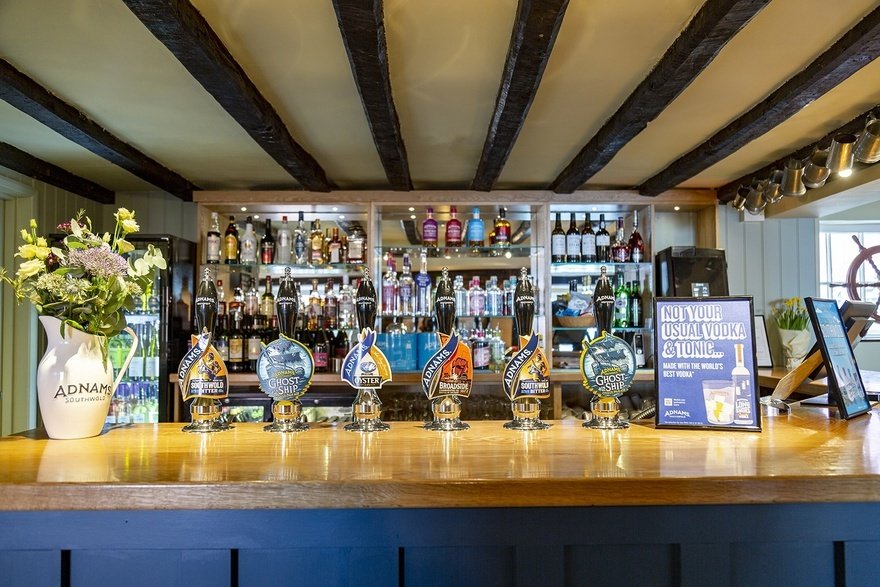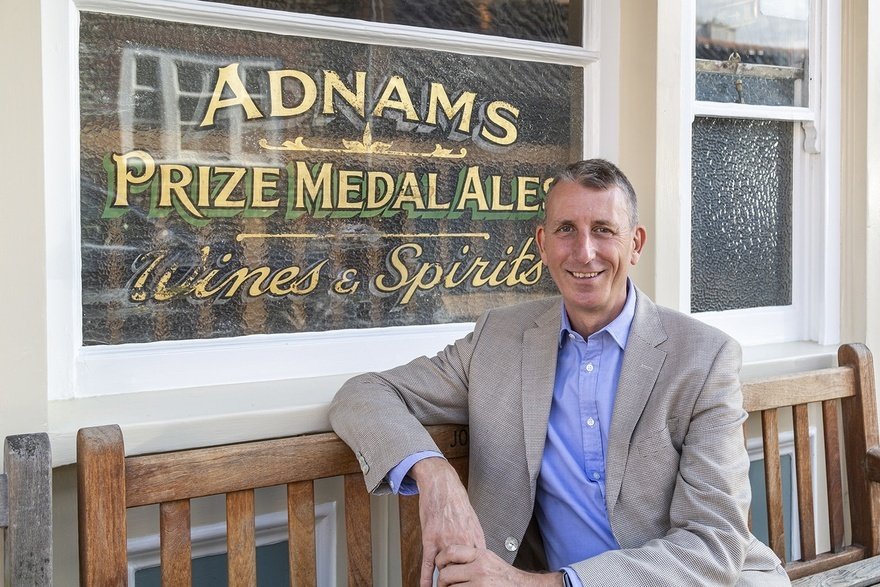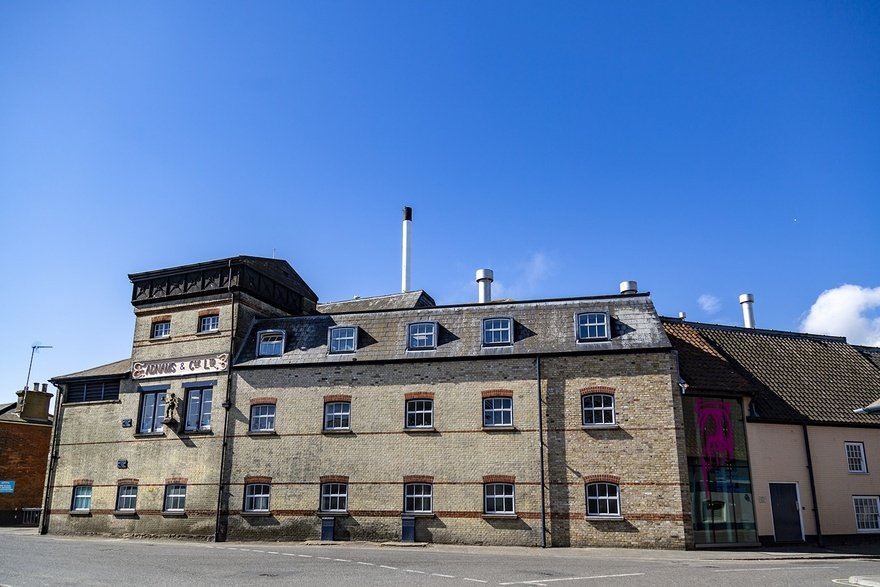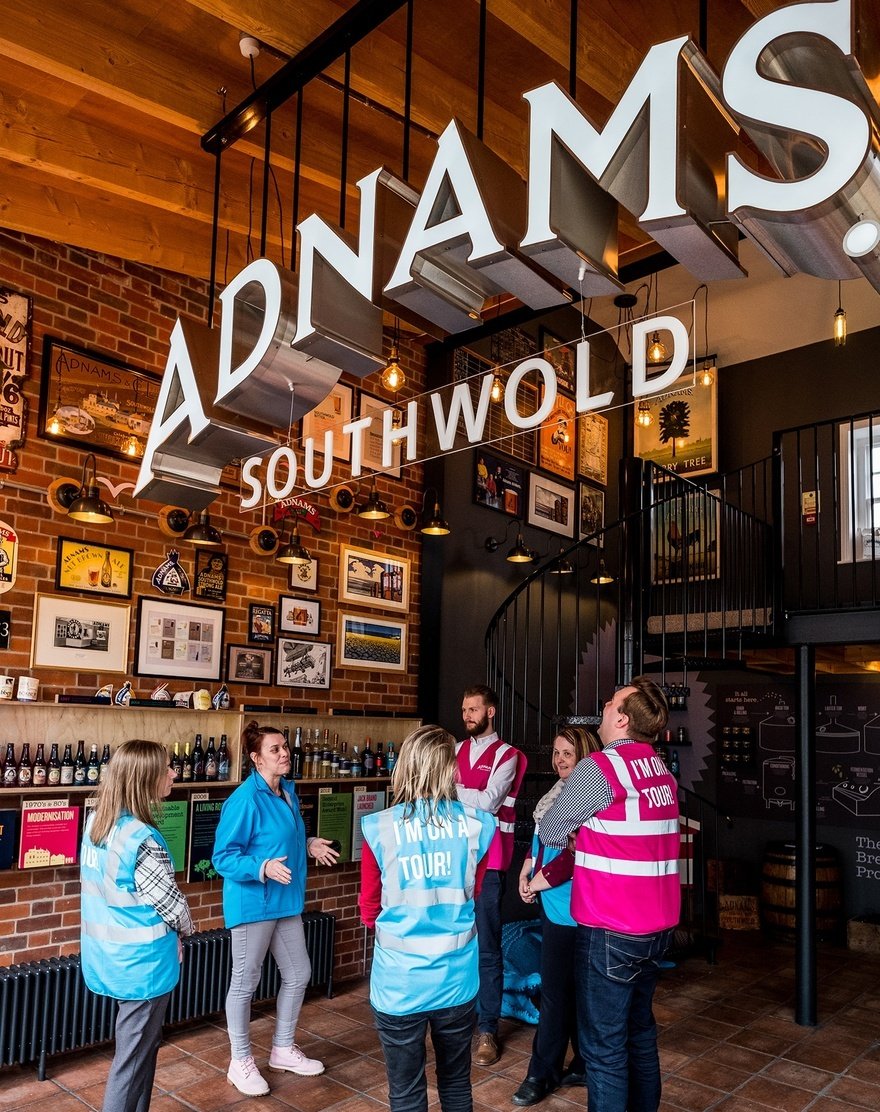Adnams' chief executive Andy Wood on how the pubco is shifting its focus from selling rooms to promoting the assets of East Anglia
Adnams hopes to make reopening after lockdown a success by offering guests a taste of East Anglia, capitalising on the predicted staycation summer boom and an increased interest in local communities. Tessa Allingham reports.
In a normal year, Adnams would around now be party-planning for an upcoming big birthday. Employees might be jotting down material for a speech and wondering where they'd stashed the bunting. Ideas for a celebratory spirit or beer might be fermenting in the minds of the company's brewers and distillers, and marketing people would be on creative stand-by.
Adnams, the Suffolk-based pubco, brewer, distiller, retailer and hotelier, turns a magnificent 150 in 2022 but, like the rest of hospitality in this sombre winter/spring of 2021, the brand remains in a Covid-induced hibernation, at least until 12 April.
So, the party is on hold. Instead, those Adnams people are totting up the cost of an appalling 12 months, and plotting a route that will ensure the company's health, while attempting to provide job security and livelihoods for over 500 employees and 36 tenants, as well as supporting suppliers of everything from laundry services to pork, and hops to hand-towels.
Eat Out to Help Out, the VAT cut and furlough helped push August-October 2020 profits from hospitality beyond those achieved in the same period in 2019, but overall losses have been – inevitably – catastrophic.
Full-year results are due in May, but the six months to June 2020 alone revealed a £3.5m deficit (it recorded a loss of £877,000 in 2019, reflecting significant IT spend) on a turnover of £21m (compared to £34.7m over the same period in 2019). By 21 June, rent will have been cancelled for nine out of 15 months, a financial hit compounded by wet sales to tenants touching just 52% of 2019 levels.
Over 90% of employees were furloughed; sadly a few were made redundant. The distillery switched to making ethanol for hand sanitiser, though online sales of alcohol – the benefit of a diverse business portfolio – subsequently boomed. "At every stage," says chief executive Andy Wood, "decisions have been driven by the question ‘what is the right thing to do?'"
At every stage decisions have been driven by the question ‘what is the right thing to do?'
Wood and his team now face the monumental task of clawing back the deficit. Companies like Adnams will be key to wider recovery, he says: "We're not London-based, we're sizeable, we offer employment locally, and we have a product that is exportable." Having an anchor in hospitality is also significant, the sector widely seen as crucial to the rebuilding of the economy.
Adnams' director of properties, Nick Attfield, is scarred by the year. He uses the word "horrific" on repeat, but is determined to look forward. "We are 149, but everything is about the future. Tradition is important, but it's the next 150 years that are exciting."
Adnams is "in a great place", he says, lucky compared with swathes of the licensed sector, where in the year to December 2020 some 12,000 premises closed permanently, according to CGA's Market Recovery Monitor from February 2021. Two new tenancies have been assigned: two Southwold pubs (the Sole Bay and the Lord Nelson) have come into management, as planned pre-Covid. "This period has reminded us how important our hospitality division is. It provides the instant cash-flow that business depends on. Our responsibility is to make the most of this to become stronger."
The Budget will no doubt help. It's a "good short-term plan", says Attfield who, with Wood, is grateful to UKHospitality and the British Beer and Pub Association (BBPA) for their advocacy. "The measures get us up and running. Recovering can happen, slowly." He is hopeful that Adnams will be trading close to pre-pandemic levels by mid-2022, in line with the chancellor's predictions.
So where to start? With care, Wood insists. "The danger point is when you begin to open. In hibernation we're in a state of suspended animation. When we start buying, brewing, bringing people off furlough – that's when expenses ramp up." Attfield agrees: "It takes two weeks to dust off buildings, stock up, prepare rooms, bring people back – and that's before making any money." He will hold back on reopening wet-led pubs, focusing on cash-generating food-led inns first.
"This is the third reopening. The first was all about ‘how do we reopen?'; this one is all about ‘how do we want to reopen?' But initially, if I can put £1 more into the till than I take out, happy days. After that it needs to be business as usual."
Summer of 2021
A lot rides on the second ‘staycation summer'. "We're well-placed to benefit," says Wood, who chairs the Visit East of England tourism organisation. "We have a fair wind, given our rural and coastal location."
Two separate 14-night bookings made in February for the summer took the team by surprise. "People are transferring spend from Tuscany to the UK," says Attfield. "A summer stay at the Swan or the White Horse in Blakeney is normally two or three nights, but the trend now is five to seven."
The 50 bedrooms in Southwold across the two hotels are full in August, and the nine-bedroom White Horse is performing "well ahead" of 2020.
Longer stays are not without impact on the local economy: "Local spend might suffer because of lack of churn. Two- to three-night stays are probably better for the high street; there's only so many times people can visit local shops." But the opportunities for a tourism boom are exciting. "The challenge is to tell the whole story of East Anglia through the Adnams lens," says Attfield who jokes that he's become as much tour operator as divisional director.
The challenge is to tell the whole story of East Anglia through the Adnams lens
"We'll draw on our local knowledge, make it easy for guests. I was on the ‘storytelling' journey before Covid: our job is no longer just about selling rooms, it's about selling an experience."
He talks of "green assets" (countryside, open air), "blue assets" (the sea) and "yellow assets" (East Anglia's relatively sunny, dry climate). Wet-weather provision has nonetheless been made, with the Reading Room at the Swan becoming a rainy-day space. Bike hire has been scaled up, cycle routes mapped and outings for all ages identified. "Guests haven't been abroad this year, but we want them to leave with lovely East Anglian memories. We know we can do that well."
Beyond summer? "That's a dilemma," says Attfield, noting how prior to Covid, the Swan was attracting 30- to 50-year-olds staying two or three nights. "But we need to look after them and welcome other people too. I'm confident we'll have a stonking summer and I've no doubt the season will extend well into autumn."
Back to work
Summer 2021 will expose particular managerial challenges. The plan is to stagger mealtimes where possible. "We'll maybe promote brunch to ease breakfast demand, and push afternoon tea at the Swan and the Crown." He'll reintroduce early meals for children, and "up the ante" on picnics.
And getting staff match-fit is a priority. "Chefs are understandably nervous, front of house, too. The Bell can do 500 covers a day in August, the Harbour 600. Last summer even at full pelt we only did 200 because of social distancing. Staff won't have dealt with normal numbers for two years."
Executive chef Nick Claxton-Webb has kept in close contact with his 40 chefs, dropping in regularly, preparing them for the return to work. "I have a duty of care," he says. "Ten-, 11-hour days will be tough after months of furlough."
Outdoor dining at the Swan from 12 April should give some practice. "We're selling weekend tables of six outside the [11] garden rooms. Each party has direct access, their own space, a private loo – there'll be music, festoon lighting… it'll help get staff into the swing of things!"
Claxton-Webb is working with teams on new menus as the reopening of outside dining approaches. Each will reflect the pub's identity, so ‘pub classics' and specials boards will remain popular, but the hope is that fresh ideas will attract last summer's customers back.
"Eat Out to Help Out boosted business in places we didn't expect," says Claxton-Webb. "We had whole lobster and fillet steak at the Plough [a roadside pub on the A12] and were selling out. We doubled our Monday-Wednesday covers at the Five Bells [in Wrentham]. It was insane."
Whether the upsell from one course to two, and from two to three, typical during Eat Out to Help Out, happens again remains to be seen, but Claxton-Webb is hopeful that menus with health-driven, free-from and plant-based options, made with sustainably sourced ingredients, will appeal.
Future pubs
Once the frenzy of summer is over, the question of where pubs fit in the wounded post-Covid landscape will be picked apart. For Attfield, the notion of ‘leisure experiences' is crucial.
"Adnams has pubs because, traditionally, that's where Adnams sold its beer. With those sales now largely online, it's about selling rooms, food, experiences. It was a change that was already happening; the pandemic accelerated it," he explains.
"We're thinking everything from yurts and lodges to delis, how to sell beer without compromising on sales, and how outdoor space could be better used."
He applauds entrepreneurial spirit, pointing to the Ferry Inn, Stokesby, on the Norfolk Broads, where a Pub is the Hub grant secured in the nick of time enabled the tenants to operate profitably as a village shop.
"People have got used to eating and drinking at home, having takeaways, being apart, doing things differently," says Wood. "We need to adapt to new habits but not lose the traditional notion of a pub. They were the first social media and information source, way before Mark Zuckerberg and the rest were twinkles in their fathers' eyes. Pubs were and remain great levellers. There's a strength in that, which is more relevant than ever now."
Technology
As for technology, the opportunities are just beginning. "Covid hit the pause button, but it also whacked the fast-forward button," says Attfield. The team quickly progressed from the stumbling ‘you're on mute' phase to company-wide catch-ups every Friday. Virtual wine, beer and spirits tastings and cookery demos kept staff connected and sharpened knowledge and skills.
Room and table bookings have migrated smoothly to digital. With web correspondence up 50% on last year against a 50% drop in phone calls, staff are freed up to deal with complex issues or organise experiences for high-spend, long-stay guests. Table-ordering apps have enabled awkward-to-access spaces like the 30-cover courtyard at the rear of the Swan to become smooth revenue generators. The app will also drive sales at busy pubs where a rammed bar is a deterrent to buying that extra drink or forgotten side.
For Wood, technology can strengthen the place of local pubs rather than threaten it. "If we harness tech, make it easy, smaller businesses like ours can compete with the tech leviathans that deliver food to your sofa while you're watching Netflix."
The trump card is localism, capitalising on the ‘village hub' role many pubs have adopted. "We must cement that position now, when people are more locally connected than they've been for ages."
Arguably the antithesis of technology is Adnams' environmental conscience. Its beach cleans, bee colonies and the grass roof at the Reydon distribution centre have long been applauded, but are likely to become an even more important message.
"Trust will be so important as we come out of this," says Wood. "People need to trust that a business cares for its people and the planet. It's not an optional extra. Adnams will be OK for the next 150 years. We're lucky to have owners with a long-term view who want capital deployed in thoughtful ways."
Party time
With the tough third lockdown coming to an end, there's relief mixed with the caution. "I can't wait," says Attfield. "There's only so much blue-sky thinking I can do. I work best against a deadline, which we now have."
He's come to appreciate the small things, though. "On Saturdays I meet a friend and we walk the dogs on the beach at Walberswick. We might get a hot chocolate from the Black Dog Deli. Sometimes I buy wine gums. That said, as soon as pubs reopen…"
So, cut to the chase, will there be a party in 2022? "Too bloody right there will," says Attfield. "The rest of 2021 might be wobbly. But 2022… even if we weren't turning 150, we all need to be around people again, hug, have a drink together. Yes, we'll be celebrating."
About Adnams
Adnams, East Green, Southwold, Suffolk IP18 6JW
www.adnams.co.uk
Chairman Jonathan Adnams
Chief executive Andy Wood
Director of properties Nick Attfield
Executive chef Nick Claxton-Webb
Employees Around 500
Property 45 pubs/inns/hotels, nine managed, 36 tied; one self-catering property
Flagship hotel The Swan, Southwold (35 bedrooms, four red AA stars)
Retail 12 Cellar & Kitchen shops
Chef and scholar
Adnams is to reignite a scholarship programme to identify and develop emerging chef talent as the country exits the pandemic.
The full-time, paid scholarship will run in partnership with two East Anglian colleges – West Suffolk, Bury St Edmunds, and Suffolk New, Ipswich – and the Suffolk-based chef supply firm and cookery school, Infusions. Two scholarships will be awarded every autumn to candidates who must have completed Level 3 studies and two-week paid internships at Adnams (these launch in September).
"We want people at their hungriest," says Nick Claxton-Webb. "It's a privilege to get them early and build chefs with rounded experience."
Scholars will work across five very different properties in and around Southwold: the Crown and Swan hotels, the Sole Bay brewery tap, and the Lord Nelson and Harbour inns. Cellar training, WSET wine courses, supplier visits and the opportunity to develop practical and managerial kitchen skills are included.
Confidence in hospitality as a career may have been shaken by a year which has obliterated some 660,000 jobs, but Claxton-Webb is not deterred. "We must be proactive," he says, accepting there will be "churn" as job security improves. "I've connected with colleges, done Zoom talks. I hope I've inspired students that there are exciting opportunities after college."
Featured photo: Anthony Cullen
Continue reading
You need to be a premium member to view this. Subscribe from just 99p per week.
Already subscribed? Log In



